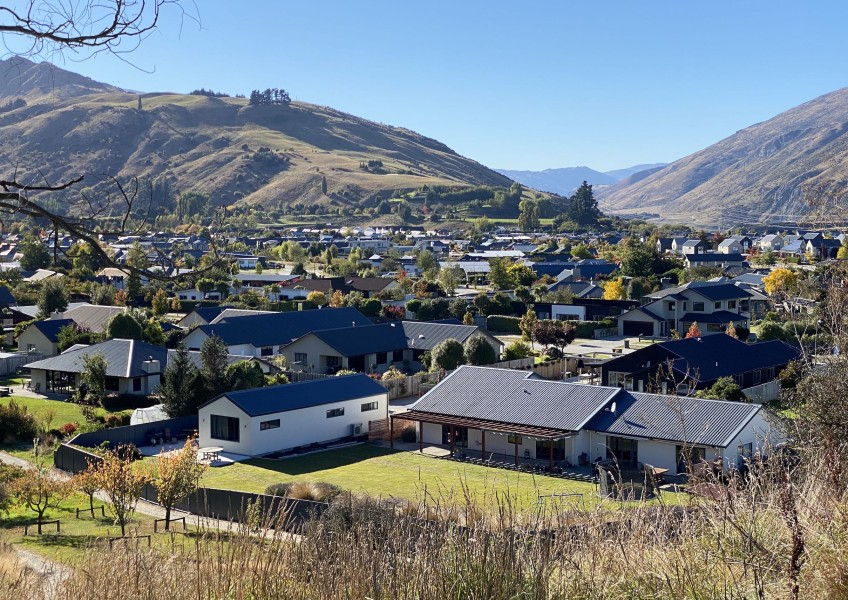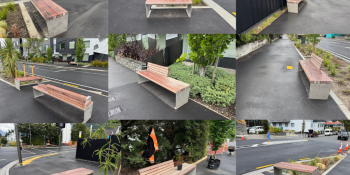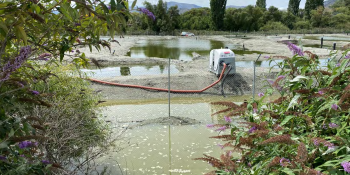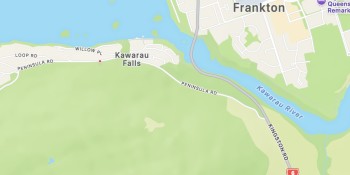Plenty of houses, but no rentals: latest report

You've told us already and now the data is backing it up - there's not enough accommodation to house the amount of workers needed to keep Queenstown Lakes ticking.
Yet, there's enough new homes being built across the district to house both long-term locals and short-term visitors, leaving decision-makers scratching their heads at how to come at finding solutions to the housing squeeze.
The latest Queenstown Lakes labour market snapshot report, commissioned by the Queenstown Lakes District Council, has found a shrinking local housing rental supply is adding pressure to the already challenged employment market.
Rental bond data from the Ministry of Business, Innovation and Employment shows there were close to 100 fewer rental homes available in November 2022 versus November 2021.
It validates concerns shared by businesses in a recent Queenstown Business Chamber of Commerce survey.
Almost three-quarters of respondents said the availability of accommodation for staff is more than just a minor issue for their business, while one in three Queenstown businesses said the housing situation represents their biggest barrier to achieving optimal staffing levels right now.
Economist and report author Benje Patterson says additional data obtained from Trade Me Property sales director Gavin Lloyd also shows a 49 percent drop in rental listings in the district from December 2021 to December 2022, but establishing the root cause of the rental shortage is challenging.
His report points to building consent numbers that show the rate of construction in the district over recent years should be more than enough to keep up with population growth, with about 1,081 more homes consented last year than were needed to meet population growth demands.
Despite a recent increase in the number of short-term stay accommodation listings in Queenstown Lakes, listing numbers remain lower than before the pandemic.
Accounting for new housing stock and new short-stay accommodation listings, data suggests about 649 new houses were built above and beyond the needs of both population growth and short-term stay demand.
“The question we don’t have a certain answer to is, what are these new houses being used for? It is likely many are unoccupied and have been constructed as holiday dwellings or homes to retire to in future. The most recent data available on unoccupied dwellings, from 2018, tells us approximately 27 percent of all houses in the district are unoccupied,” Mr Patterson says.
Queenstown Lakes District Mayor Glyn Lewers says this data provides important insight to support decision making and fuel a united focus from the council, local businesses, organisations and central government towards solutions.
“We are acutely aware of the related impacts on the labour market and local businesses that is linked with our district’s housing challenge. The report tells us that while building houses is an important piece of the puzzle, building more will not solve the problem alone. We must tackle this from many angles and in partnership with those who can help our community realise sustained change in the makeup of our housing market, and that’s what we’re focused on.”
Queenstown Business Chamber of Commerce acting chief executive Sharon Fifield says housing is clearly a growing concern amongst the myriad of challenges businesses already face in attracting and retaining staff.
“Recognising that many employers are now needing to consider providing worker accommodation as part of their longer term workforce strategy, the chamber will soon hold an information series on all the things employers need to consider when housing staff, as it is complex.”
Meanwhile, the labour market snapshot data also shows job numbers in Queenstown Lakes has recovered to close to its pre-Covid peak in December 2019.
However, the labour market make-up shows an uplift in industry servicing a growing population, while hospitality continues to struggle to serve returning tourists with 1,200 fewer staff than in the summer of 2019/20.
The full report is available on the QLDC’s website at: https://www.qldc.govt.nz/community/economic-development/building-business-capability-and-talent


























